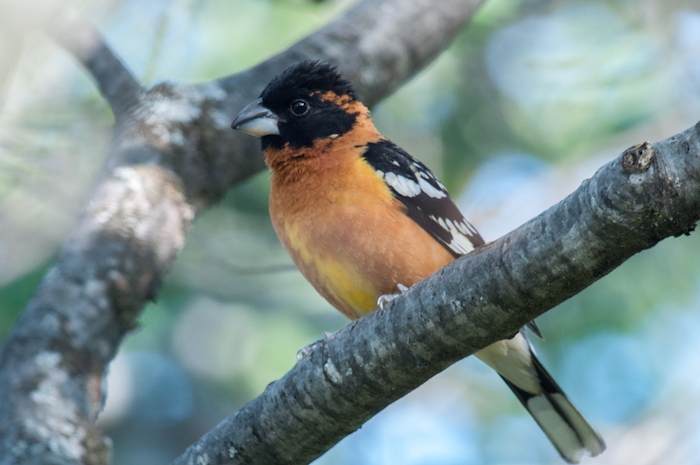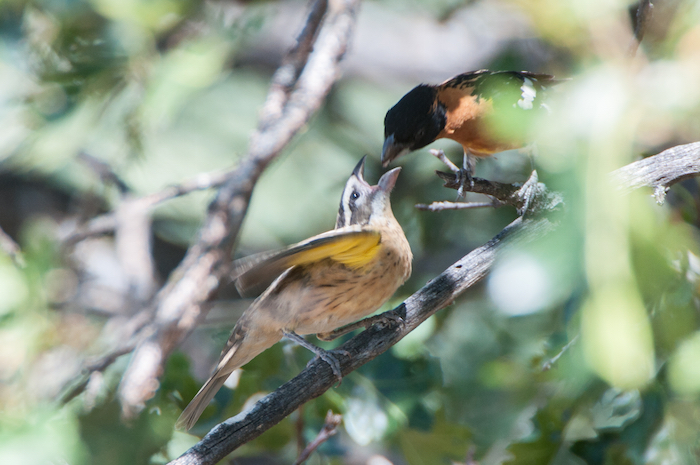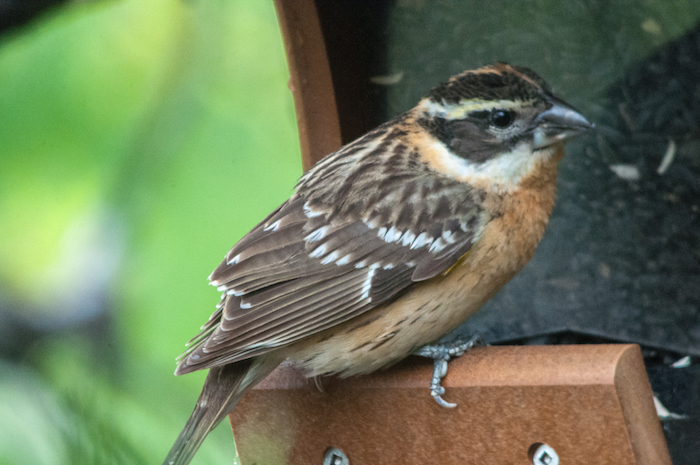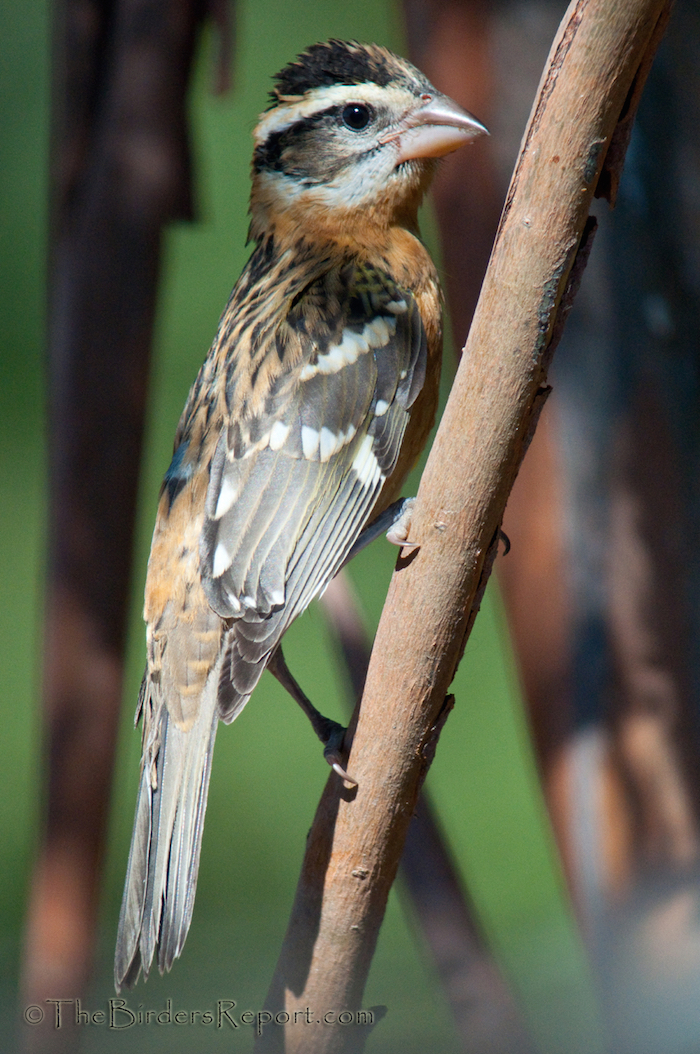
Black-headed Grosbeak Male
It’s spring, and the busier the birds and bees are, the better it is for all of us. Part of that busy-ness has to be raising offspring.
Birds take on rearing their children with all the variety and flair of feathers. Many young birds are brought up in two-parent nests; others just by mom, some just by dad; some are raised by foster parents; still others are grouped into “it takes a village” scenarios. There are numerous child-rearing styles. But no young bird prospers without substantial parenting in some form.

Black-headed Grosbeak Male Feeding Young
Billions of aspiring avian moms and dads are in this child-raising season right now. Most songbird pairs share their nesting duties. Typically, the female incubates and turns the eggs, and quietly chirps to the young, who learn her voice before they hatch. Males in some species spell their mates on the nest, but more often do guard duty, dive-bombing or distracting predators. Both parents feed the hatchlings, hunting down hundreds of insects and making scores of feeding visits to the nest every day. When the fledglings take wing, the male often shepherds them, while mom perhaps begins a second or even third nest.

Black-headed Grosbeak Female
Black-headed grosbeaks, colorful, big-billed birds, take the sharing of nest duties a notch or two farther than most species. When a dangerous jay or neighborhood cat approaches, the female readily joins her mate in harassing the predator, attempting to drive it from their vulnerable young. On his part, the male, with rare egalitarianism, undertakes an even share of egg incubation and nestling-warming. More noisily than his mate, he nests with what seems foolhardy flair; he sings loudly right from the nest, as if he can’t contain his proud papa-hood.

Black-headed Grosbeak Juvenile
Unike the precocial ready-to-go chicks of turkeys, ducks and quail, hatchling grosbeaks are altricial—blind, naked, and helpless. Within two weeks, however, under their parents’ relentless feeding and guardianship, the babies are full grown and feathered, ready to try their wings.
Like so many of our nesting birds, grosbeaks are travelers, wintering in Mexico and nesting as far north as British Columbia. Like robins, they have adapted effectively to suburbs and parks. They prefer to nest near water where both trees and brush offer cover. The females weave loose nests, usually on outer branches no higher than a second story window. Both the male and female sing profusely, a tune and tone frequently likened to that of a tipsy robin. His song is especially loud and clear, waltzing through the woods any time of day.
These singers of the American West dine on seeds, insects, and fruit, happily foraging high above us mere walklings. They are, however, happy to descend to our level to empty our feeders of sunflower seeds. There we can enjoy their burnt orange plumage and oddly hefty bills.

No comments yet.